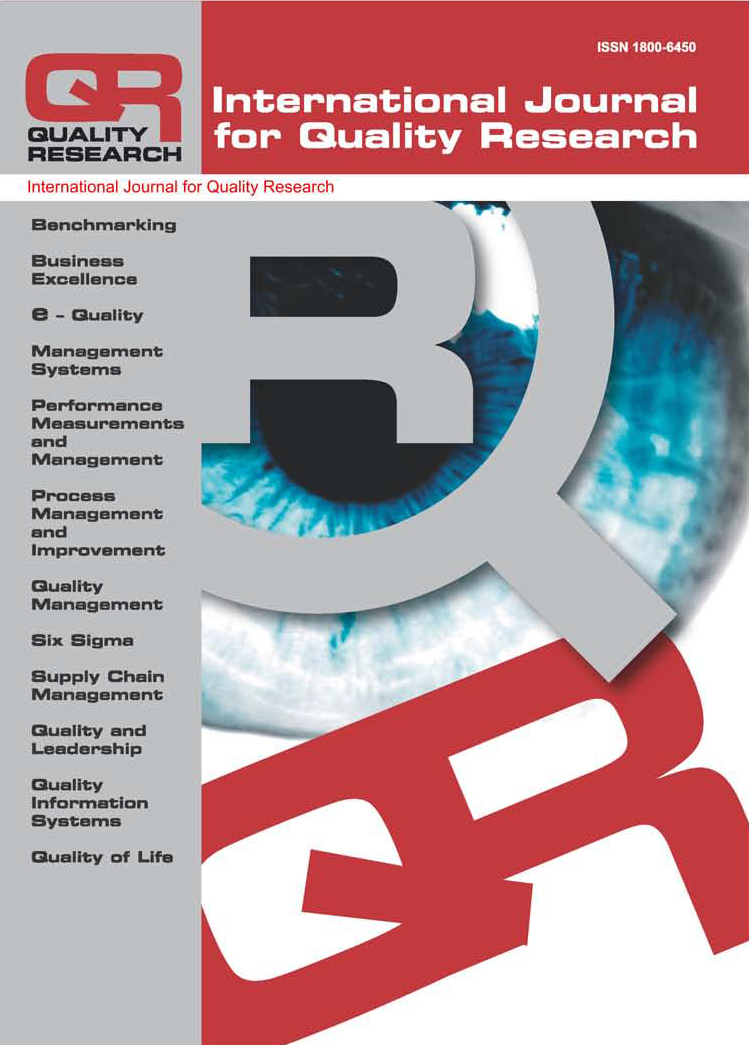EFFICIENCY OF ISO 9001 IN PORTUGAL: A QUALITATIVE STUDY FROM A HOLISTIC THEORETICAL PERSPECTIVE
Alcina Dias, Inaki Heras
Abstract: The purpose of this paper is to analy se the efficiency of ISO 9001 from a holistic theoretical approach where the Contingency theory, the Institutional theory and the Resources-Based View are integrated. The study was carried out in companies of different sectors of activity in Portugal, based on a qualitative methodology (interviews). The fact of the interviews having been undertaken under an ISO 9001 structure made it easier for companies to grasp the issues under investigation. An ISO 9001 characterisation was carried out on a theoretical framework approach and findings point out efficiency gains and revealed that the absence of ISO 9001 would work as a competitive disadvantage. The contribution of this research aims to reinforce the state of art as concerns the theoretical scope of analysis of these issues enriched by the case study achievement.
Keywords: SO 9001, efficiency, performance, institutional theory, contingency theory, RBV, efficiency, effectiveness
DOI:
Recieved: 21 October 2012 Accepted: 4 February 2013 UDC: 006.83
Reads: 1569 







